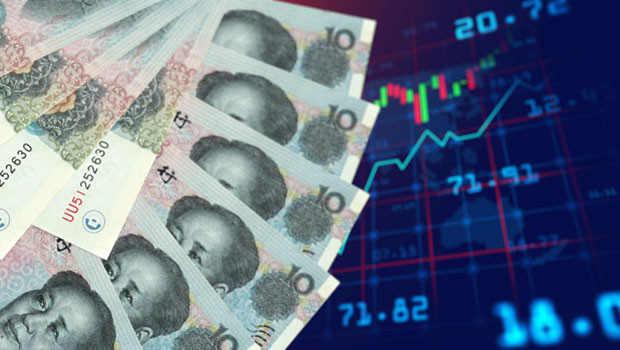Asia report: Most markets rise after China data dump

Markets across the Asia-Pacific region mostly rose on Friday, bolstered by a sharp rebound in Chinese stocks following stronger-than-expected GDP data.
The recovery in China and Hong Kong lifted investor sentiment, despite mixed performances across other major regional markets.
“China's stock market rose on Friday as the central bank launched a swap facility to boost the equity market, although other Asian markets were mixed amid data confirming a slowdown in the world's second-largest economy,” said Patrick Munnelly at TickMill.
“The dollar hovered near an 11-week high against major peers, supported by robust economic data and market speculation about a potential election victory for Donald Trump, which helped push gold to a new record high.
“China's central bank governor also signalled more interest rate cuts, but investors have been frustrated by the lack of details from Chinese authorities on their economic stimulus measures.”
Munnelly noted that China's economic growth in the third quarter slightly missed expectations, though it still expanded year-on-year.
“The announcement of the most aggressive stimulus since the pandemic at the end of last month has overshadowed the recent data, even though the lack of detail in subsequent press briefings has diminished the initial momentum.”
Most markets in the green after Chinese GDP data
In mainland China, the Shanghai Composite surged 2.91% to 3,261.56, while the Shenzhen Component rocketed 4.71% to 10,357.68.
Strong gains in the tech sector, with Advanced Micro Fabrication up 13.55% and Montage Technology rising 12.41%, reflected the upbeat economic data.
Hong Kong's Hang Seng Index also rallied, climbing 3.61% to 20,804.11, driven by SMIC, which surged 16.35%, and BYD Electronic International, up 12.32%.
Japan’s Nikkei 225 edged higher by 0.18% to close at 38,981.75, supported by gains in Otsuka of 3.37%, and DeNA of 2.92%.
The broader Topix index saw a marginal increase of 0.04% to 2,688.98.
However, South Korea's Kospi 100 fell by 0.63% to 2,604.33, with semiconductor firms such as Hanmi Semiconductor plunging 10.4% and SK Hynix down 4.44%, weighing on the index.
Australia’s S&P/ASX 200 declined 0.87% to 8,283.20, pressured by steep losses in travel-related stocks.
Flight Centre Travel Group tumbled 20.44%, while Corporate Travel Management fell 9.51%.
In contrast, New Zealand’s S&P/NZX 50 rose by 0.43% to 12,823.89, led by a 7.32% jump in Synlait Milk and solid gains in Property for Industry and Manawa Energy.
In currency markets, the dollar was last down 0.23% on the yen, trading at JPY 149.87, while it slipped 0.21% against the Aussie to AUD 1.4902, and retreated 0.16% from the Kiwi, changing hands at NZD 1.6476.
Oil prices were relatively stable, with Brent crude futures last down 0.03% on ICE at $74.43 per barrel, and the NYMEX quote for West Texas Intermediate holding steady at $70.69.
China’s economic growth slows in third quarter, Japanese inflation still high
In economic news, China's economy grew 4.6% in the third quarter of 2024, slightly surpassing expectations but slowing from the prior quarter's 4.7% growth.
The pace marked the slowest expansion since mid-2023, further distancing the country from its 5% annual growth target.
In September, retail sales outperformed forecasts with a 3.2% year-on-year increase, while industrial output grew 5.4%, exceeding expectations.
However, the real estate sector continued to struggle, with house prices falling 5.8% year-on-year in September, a larger decline than August’s 5.3% drop.
China's central bank governor, Pan Gongsheng, signalled further monetary easing could be on the horizon.
Speaking at a financial forum in Beijing, Pan indicated that the reserve requirement ratio (RRR) for commercial banks could be cut by 25 to 50 basis points before year-end.
Additionally, he hinted at potential reductions in the seven-day reverse repurchase rate by 20 basis points and the medium-term lending facility rate by 30 basis points.
In Japan, inflation remained elevated in September.
Headline inflation reached 2.5%, while core consumer prices, which exclude fresh food, rose 2.4% year-on-year, slightly above the 2.3% anticipated by economists.
The data suggested that inflationary pressures in Japan persist despite ongoing efforts to stabilise prices.
Reporting by Josh White for Sharecast.com.